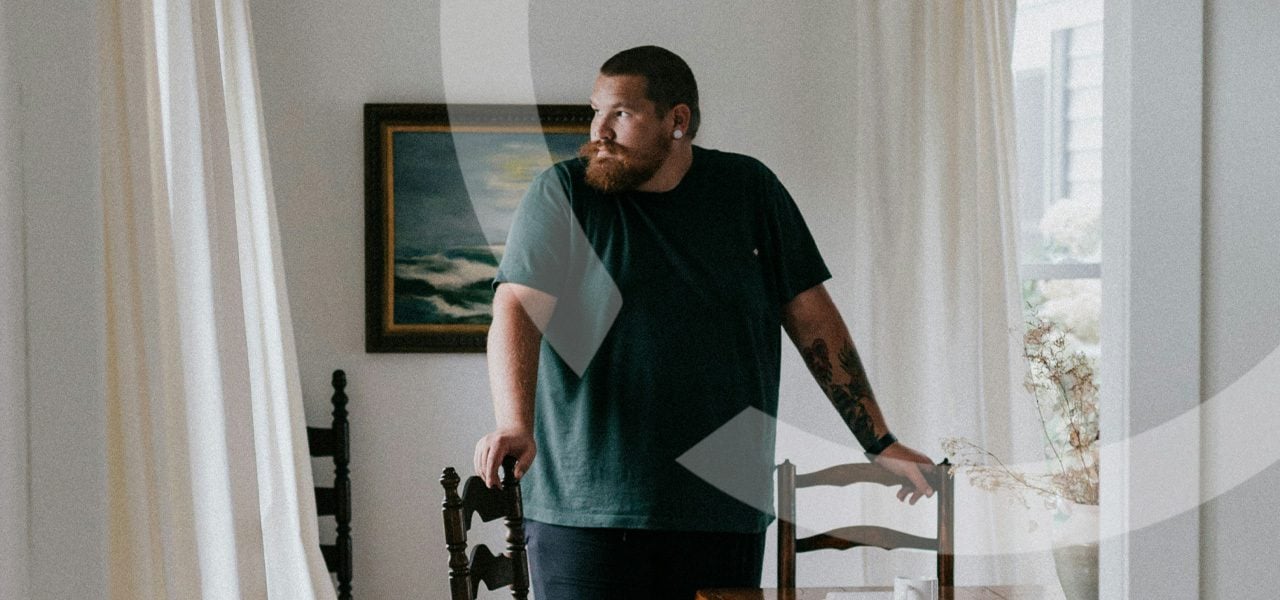The decision to seek care for your alcohol or drug addiction is an important step towards recovery. By researching the differences in treatment options, you are already demonstrating self-awareness and initiative to make a change. Nonetheless, with so much information available online, the researching process can be intimidating. In this article, we will help you understand what online options are available so that you can make an informed decision about which course of action is the best for you.
One option when seeking online therapy is an Virtual Intensive Treatment Programs (VITP). This is an addiction or mental health treatment program designed for individuals who need more structure and intensive treatment than they can get from standard treatment options such as one-on-one therapy, medication, and support groups. VITPs can either be in person or provided through an online therapy platform.
Online therapy for mental health and addiction
Online therapy, also known as e-therapy, virtual therapy or teletherapy can be an effective treatment option for mental health and addiction support over the internet. This can occur via messaging, texts, video conferencing, or other digital solutions in real-time. This method can be beneficial to those struggling with mild to moderate addiction or mental health symptoms. It is important to note that online therapy can be very effective for many, but it is not a suitable replacement for inpatient programming if you are experiencing severe addiction symptoms.
Online therapy is an excellent solution if you live in a remote area, have limited access to quality substance addiction support or prefer to get help from the comfort of your own home. Programs that are strictly online typically have fewer operational costs and therefore can often offer more affordable treatment options. Online therapy is convenient and affordable – gone are the days of long commutes to therapy, missing work, or booking a babysitter to attend a session.
How to have the best online therapy experience
Convenience is often reported as one of the greatest advantages of online therapy, however; this is contingent on the assumption that patients have access to a:
- High speed internet connection
- Laptop or tablet (preferable to a smartphone)
- Private and comfortable space
- Solid support system or loved one to help maintain accountability throughout the program
Accessing online therapy for addiction
To begin the process of joining an online therapy program, decide which medium you prefer (text, video call, etc.) and conduct an online search. Find a place that resonates best with you and call or request an appointment. They may ask questions about your current mental state and demographic information to help match you with a compatible counsellor or program. Some additional factors to consider when choosing an online addictions program include:
- Therapist designation: If you want insurance to cover the cost of your therapy, make sure that the company has what you’re looking for. You will want to ask about if the therapists are Masters-level and registered, as most insurance companies have policies around this.
- Schedules: Find out how flexible the individual and groups session schedules are to ensure they fit into your work and home life.
- Evidence-based: Therapeutic approaches such as Cognitive Behavioral Therapy (CBT) and Dialectical Behavioural Therapy (DBT) have been researched and proven to help patients develop meaningful and lasting change in their lives. Ask the admissions counsellor about which methods their programs use.
- Price: Determine how much the sessions cost and what your budget can support. It is also important to consider what else the program offers in addition to the therapy (i.e. family support, aftercare, etc).
Pricing and payment methods for online therapy vary. Some platforms might use a subscription structure, billing you bi-weekly or monthly, and some might have you pay yearly or by session. It is important to keep in mind which method works best for you when selecting a platform. Prices for online therapy typically reside between $60-100 per session, which is a nice contrast to the $150-240 average for an in-person therapy session.
Figuring out which program is right for you
Substance use disorders are classified as mild, moderate and severe. Use the following criteria to help understand where your symptoms stand. If you agree with 2-4 of the following statements, you likely have mild symptoms. If you agree with 4-6 of the following statements you might fall under the moderate category, and 7+ means you are likely experiencing severe symptoms of substance use disorder. Speak to a healthcare professional for a formal diagnosis.
- Your substance use has created dangerous situations for yourself or others.
- Your substance use has caused relationship problems or conflicts with others.
- You frequently fail to meet your responsibilities at work or home.
- When you stop using the substance, you experience withdrawal symptoms.
- You have built a tolerance and have increased your use amount and frequency.
- You’ve tried to cut back or quit entirely, but haven’t been successful.
- You spend a lot of your time using the substance.
- Your substance use has led to physical or mental health problems, such as liver damage or anxiety.
- You have skipped activities or stopped doing activities you once enjoyed in order to use the substance.
- You experience cravings for the substance.
Types of online therapy for addiction
There is a wide variety of online therapy solutions. To determine which option may be best for you given the severity of your symptoms, see the checklist above.
- Individual counselling – One on one counselling with a therapist via secure video platform. Most effective for mild symptoms.
- Self-help groups – AA or SMART Recovery groups via secure video platform. Most effective for mild symptoms.
- Mental health and wellness apps – Websites/self-led apps dedicated to mental health and wellness. Most effective for mild symptoms.
- Group counselling – Therapeutic support with peers led by a therapist via secure video platform. Most effective for mild/moderate symptoms.
- Virtual Intensive Treatment Programs (VITPs) – Intensive online treatment via secure platform. Most effective for mild/moderate symptoms.
For those experiencing severe symptoms of addiction, inpatient therapy with medically assisted detox treatment might be a more suitable action plan for you.
How can a Virtual Intensive Treatment Program (VITP) help you recover from addiction?
Have you tried individual counselling or self-help groups but feel you need more help? VITPs provide a more structured and intensive solution as they combine individual counselling, group counselling, family support and an app into one bundled package. Both intensive and flexible, VITPs are effective for those who are unable to take time away from family or work, but require more structure in their treatment process.
VITP patients can maintain their daily routines and access therapy outside of work hours. Some of the most notable benefits for substance use disorder VITPs are:
- Flexible scheduling to prevent interference with family and work time
- Receive support and connection from others in a safe and non-judgemental space
- Manage progress and prevent relapse with a structured aftercare program
- Involve loved ones in your recovery for additional long term support
- Receive immediate support with rolling intake and support on demand
- Stay on top of your own recovery with progress tracking
- Complimentary to AA and SMART Recovery
- Evidence-based and use curriculum that is proven to work
- Compatible with an easy-to-use online platform and app
The VITP at EHN Online is eight weeks of intensive treatment, for nine hours a week, featuring both individual and group therapy. Studies show that group therapy plays an important role on the route to recovery as it creates a close-knit support network to give and receive information from peers with similar experiences, and provides an opportunity for increased self-awareness.[1] [2]
For ten months following treatment, patients participate in aftercare, with one virtual group meeting per week and access to the outpatient app, Wagon. This will allow you to track daily progress, achieve your goals, and better communicate with your counsellor. EHN Online’s in-house clinical team ensures full cohesion across the network, so your designated counsellor can join you throughout your entire journey to recovery.
Accessing an Virtual Intensive Treatment Program
To begin your journey with an EHN Online Virtual Intensive Treatment Program, book an assessment with one of our VITP counsellors. You’ll discuss your symptoms, your history, and your goals for the future before you agree on a program that’s right for you. If you decide to go ahead, your counsellor will register you in that program during your appointment.
Many employee benefit plans cover treatment programs for alcohol and drug addiction. Contact EHN Online with the name of your employer and insurance provider so we can help determine your coverage and financing solutions.
Other VITP streams
EHN Online offers a variety of Virtual Intensive Treatment Programs to help individuals reach their recovery goals:
How much does an VITP for addiction cost?
When it comes to cost, you need to take into account the chance of future intensive program needs. If your initial treatment does not have lasting positive effects and you need to re-enter a program, your total cost of rehabilitation will increase dramatically. It is more cost-effective to select a program that you feel will best address your needs, immerse you with a supportive group of peers, and keep you on track the first time around.
While your mental and physical health doesn’t have a price tag, you do have to consider what type of support can fit into your budget. Because of the bundled nature of VITPs, the hourly cost is actually far lower than a stand-alone individual therapy session or group. Here’s a simple cost breakdown:
Less than $55/hour for 168 hours over one year:
- 9 hours of individual/group therapy sessions for 8 weeks
- 10 available hours of family programming
- 10 months of weekly aftercare
- Access to a digital app for corresponding materials and progress reports
- A detailed discharge meeting and summary
Compared to traditional prices for individual and group therapy at about $60-100 per hourly session, an Virtual Intensive Treatment Program provides a bundled offering for proven results and affordable prices.
There is no single method of recovery that is the right solution for everyone. Individuals will thrive when they find a mixture of therapies, education, and lifestyle changes that works for them. A great place to begin is to use the severity classification method listed above to identify whether or not you would benefit from separation from your current surroundings and habits.
Congratulations on taking the first step towards recovery! Beginning the process is the most daunting part, and your initiative shows your willingness to make a change in your life. Whichever course of treatment you choose, recovery is around the corner!
All of the information on this page has been reviewed and verified by a certified addiction professional.
[1] Fogger, S. A., & Lehmann, K. (2017). Recovery Beyond Buprenorphine: Nurse-Led Group Therapy. Journal of addictions nursing, 28(3), 152–156. https://doi.org/10.1097/JAN.0000000000000180
[2] Epstein, E. E., McCrady, B. S., Hallgren, K. A., Gaba, A., Cook, S., Jensen, N., Hildebrandt, T., Holzhauer, C. G., & Litt, M. D. (2018). Individual versus group female-specific cognitive behavior therapy for alcohol use disorder. Journal of substance abuse treatment, 88, 27–43. https://doi.org/10.1016/j.jsat.2018.02.003
[3] Inpatient vs. outpatient treatment: Recovery options. (2020, September 18). https://www.addictioncenter.com/treatment/inpatient-outpatient-rehab/.
[4] Inpatient vs. Outpatient: Comparing Two Types of Patient Care. St. George’s University. (2019, June 18). https://www.sgu.edu/blog/medical/inpatient-versus-outpatient/.
A Team That Supports Your Recovery Goals
At EHN Canada and EHN Online, we believe that all families impacted by addiction deserve support. Those who participate in our programs can invite loved ones to join monthly online Family Education Workshops and continuing care groups. In these workshops, friends and family can learn to assist their loved ones as they integrate recovery skills into daily life, as well as receive education on how to maintain their own wellbeing along the way. In addition, Family Aftercare is a weekly group offered virtually for family members.
We make the process of getting the qualified help you need easy. Give us a call to learn more about our services and how we can support you on your journey to recovery. With facilities online and across Canada, we can find a program that’s right for you.
Contact Us
EHN Bellwood Toronto
Toronto, ON
1-800-387-6198
EHN Edgewood Nanaimo
Vancouver Island, BC
1-800-683-0111
EHN Bellwood Nova Scotia
Lawrencetown, NS
1-800-676-3393
EHN Sandstone Recovery Center
Calgary, AB
1-587-350-6818
EHN Guardians Gateway
Peterborough, Ontario
1-705-535-0636
EHN Nouveau Départ Montréal
Montreal, Quebec
1-888-488-2611
Outpatient Services (Multiple locations): 1-888-767-3711
After finding the right program, you can get started on your recovery, supported by EHN Canada, a recognized leader in addiction and mental health services. Wherever your symptoms fall, we can help you find a new and better place to thrive.




